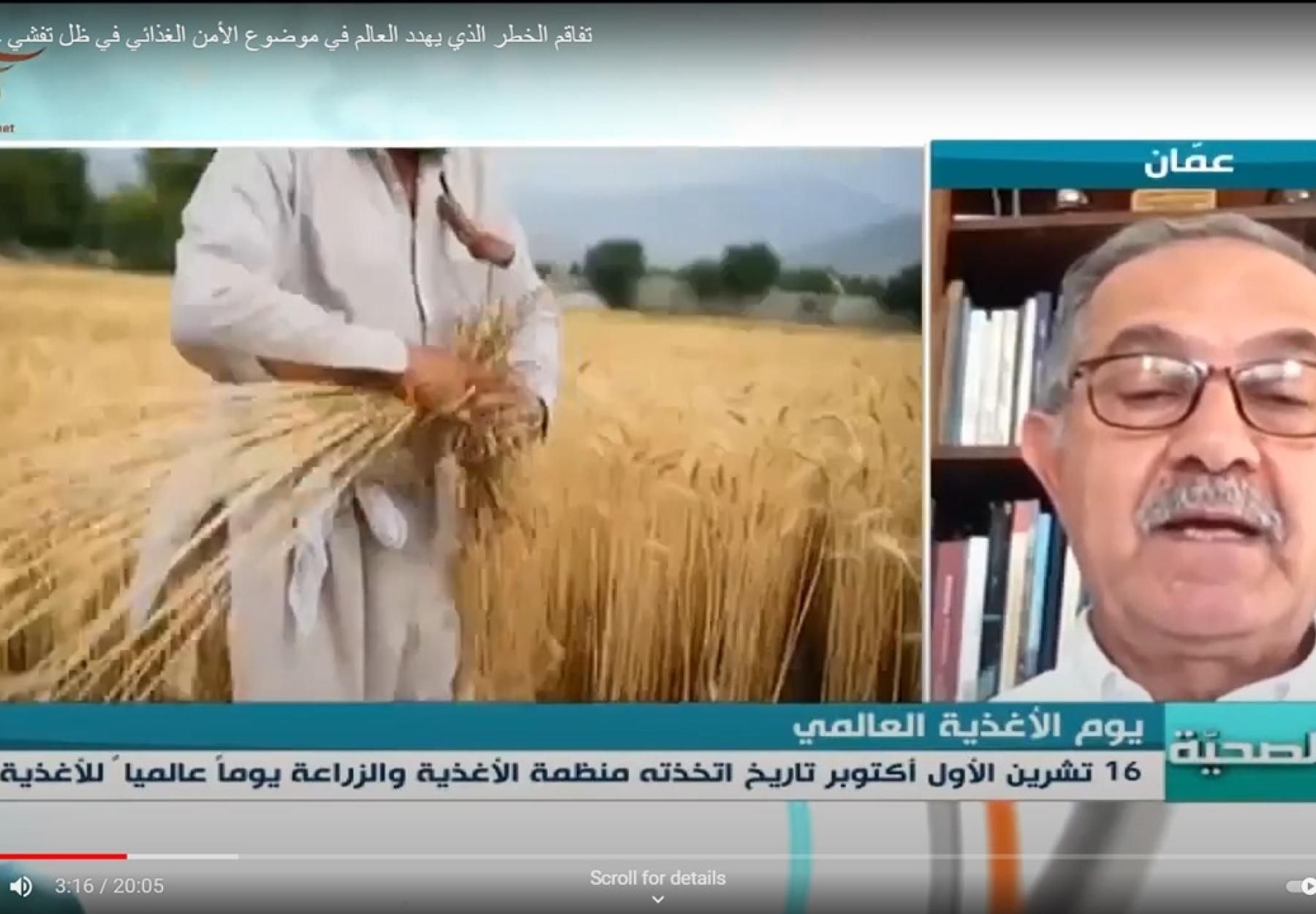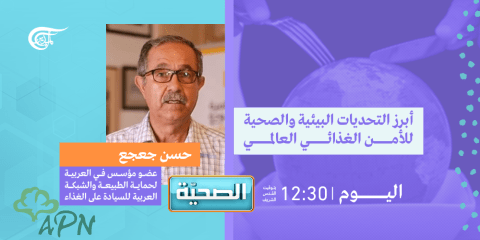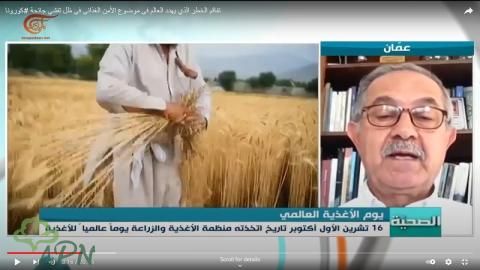
On World Food Day, October 16th,2021, the co-founding member of The Arab Group for the Protection of Nature (APN), Eng.Hassan Al Jaajaa discussed the prominent environmental and health challenges facing food security in the world, specifically in the Arab Region, as well as the efforts made by countries and people to meet the basic needs of citizens. This took place during an interview conducted with Al Jaajaa by Al-Mayadeen Channel as part of Al-Sahia program on 17 October 2021.
Eng. Hassan believes that despite the United Nations’ dedication in scheduling an international day focused towards food issues on an international scale, the world still faces a severe decline in various categories; such as the decline in the environmental sector, increase in malnourished societies, increase in water pollution, decline in vegetation and increasing global warming, causing a global humanitarian crises that requires countries, United Nations organizations, and the civil society to take action and find appropriate solutions.
“It is clear that we are not on the right path”, says Eng. Hassan, as results and statistics published by the United Nations prove this deterioration on an annual basis. This is especially true in Asia and Africa, followed by South America. This serves as an indication that the plans laid and executed do not pay off, as he put it.
Al Jaajaa partially held governments responsible stating that the consumption system is affecting the environmental equilibrium. Nevertheless, major multinational companies that aim to accumulate profit at the cost of the agricultural environment and communities play a large part in the issue as well. All in addition to the negative role played by the societal behaviors that do not respect the environment and increase pollution.
Al Jaajaa mentioned examples of international behaviors that affect environmental sustainability and international food security, for example; the use of coal, tree logging in South America by major American companies to replace forests with feeding farms, as well as the unjust distribution of water among countries. He also mentioned the phenomenon of stunting due to malnutrition, and the international blockade and use of food as a weapon against nations and people.
Nevertheless, if the behaviors of governments around the world threaten the people’s food security, there is a major role the people need to realize, which involves changing their dietary habits. Starting with reducing the rate of consumption of meats and increasing the consumption of grains and legumes, as well as responsibly using fishery resources, aiming to control the severe groundwater pollution by reducing the excessive use of fertilizers, and lastly, reducing plastic use to decrease sea pollution which affects fishery resources and causes illness.
However, individual efforts alone would not suffice, civil society organizations have a role to play as well. Which is what APN recently accomplished by taking part in the People’s Food Systems Summit, held in conjunction with the United Nations’ Food Summit in New York. The People’s Summit called for boycotting the UN’s summit for thier support to international companies which in turn contribute to the global environmental and food decline, while tens of civil society organizations at the people’s summit sided with the farmers and farming communities on a global scale.
As for the governments, al-Jaajaa considered the problems threatening the the world’s environment and food security do not pose a threat on a single country, rather on regions as a whole, and they cannot be fixed until a real partnership between the civil society which represent people’s interests and governmental systems exists, in order to maintain their food security, develop their agricultural programs, without being affected, influenced, or pressured by global powers.

